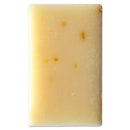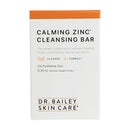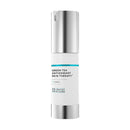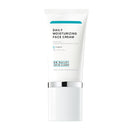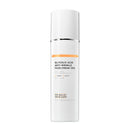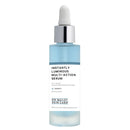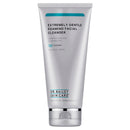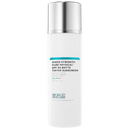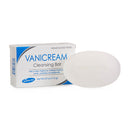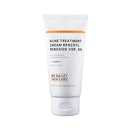Can you have an allergy to face masks?

Allergy to face masks is something that many people are facing right now. The topic is trending on the web. Can you be allergic to face masks? Yes. You definitely can be allergic to face masks - all face masks.
Allergy to Face Masks
How do you get allergic to medical and non-medical face masks?
Face masks, including traditional surgical face masks, N95 masks and reusable fabric masks can contain chemicals you can be allergic to. Allergic skin reactions to face masks seen in 2002 with the SARS epidemic included allergy to a number of chemical components that the masks are made from.
Chemicals in face masks causing allergic reactions include:
- formaldehyde,
- ethylene urea melamine formaldehyde,
- quaternium-15.
What are the signs of a face mask allergy?
Most reactions are skin rash (eczema). Eczematous allergic contact dermatitis manifests as redness, scale, itch and even blisters at the site of contact of the mask to the skin. The classic allergic contact dermatitis rash everyone is familiar with is poison oak or ivy and an eczema rash from mask allergy may look similar. Allergic contact dermatitis to the elastic ear strap has also been seen.
Hives (contact urticaria) with respiratory symptoms due to hive reaction have also been seen. Hives are very itchy red bumps that don't have scale and that may move around in a matter of hours. They look like bug bites. Because the allergic mechanism is similar to seasonal allergies one can get respiratory symptom. In a worst-case scenario, hives are related to anaphylaxis so if respiratory symptoms are significant one needs to see a physician quickly.
Can you be allergic to reusable home-made face masks?
Reusable masks pose their own potential allergic reaction.
- Fabric masks that are washed may lead to allergic reactions to detergents and fabric softener residue left in fabric. This is often due to fragrance in laundry care products and retained detergent residue due to incomplete rinsing of the load after washing.
- Textile allergy to dyes and fabric seizing chemicals can also happen.
- Masks that are cleaned with disinfectant chemicals may cause allergic reactions to the disinfectants or irritation from chemical residue.
How can you prevent allergic reactions to face masks?
You can’t entirely. I was allergic to disposable surgical masks and tried all of the options available. As a surgical dermatologist I needed to spend most of my day masked. My skin would not tolerate any. I switched to fabric masks and that solved my skin rash. My cloth reusable surgical masks are locally made by hand here in California and I am now offering a limited supply during the COVID pandemic since these masks have worked so well for me during my dermatology career.
How to wash your fabric reusable masks to ensure you don't get allergic to laundry care products.
To avoid laundry allergic reactions to my fabric masks, I wash my masks in fragrance-free laundry detergent for sensitive skin and I don’t use fabric softener. I always recommend we always rinse loads of laundry well so that our skin is not exposed to laundry detergent residue.
How to remove excess fabric chemicals to help avoid allergy to chemicals in fabric reusable face masks.
When you buy a fabric mask wash it first to remove fabric seizing and lower the dye content. If your mask includes elastic, I recommend you hang dry it to prevent the elastic from breaking down with dryer heat. Dryer heat breaks down elastic and causes it to release the chemicals which makeup elastic.
I recommend cotton fabric masks against your skin. Chose ones with minimal dye, no anti-microbial additives and no antiwrinkle additives since these can all become allergens. If you are using chemicals to disinfect rigid material masks be sure to remove the chemicals with water before placing the mask on your face.
How to heal your skin that has an allergic reaction to a face mask
It is important to avoid allergens and irritating chemicals in your skin care routine until the skin has healed. A simple routine using VaniCream Cleansing Bar to wash your face followed by application of my Daily Face Cream will allow the skin to heal. If the reaction is also behind your ears use a shampoo designed for sensitive skin and scalp, eczema, skin allergies, or other sensitive skin conditions.
References:
Donovan, Jeff; Kudla, Irena; Holness, Linn D.; Skotnicki-Grant, Sandy; Nethercott, James R., Skin Reactions Following Use of N95 Facial Masks, Dermatitis: June 2007 - Volume 18 - Issue 2 - p 104
Faisal M Al Badri MD, Allergies in the workplace Surgical Mask Contact Dermatitis and Epidemiology of Contact Dermatitis in Healthcare Workers, Current Allergy & Clinical Immunology| September 2017 | Vol 30, No 3
Svedman, C., Engfeldt, M. & Malinauskiene, L. Textile Contact Dermatitis: How Fabrics Can Induce Dermatitis. Curr Treat Options Allergy 6, 103–111 (2019).

